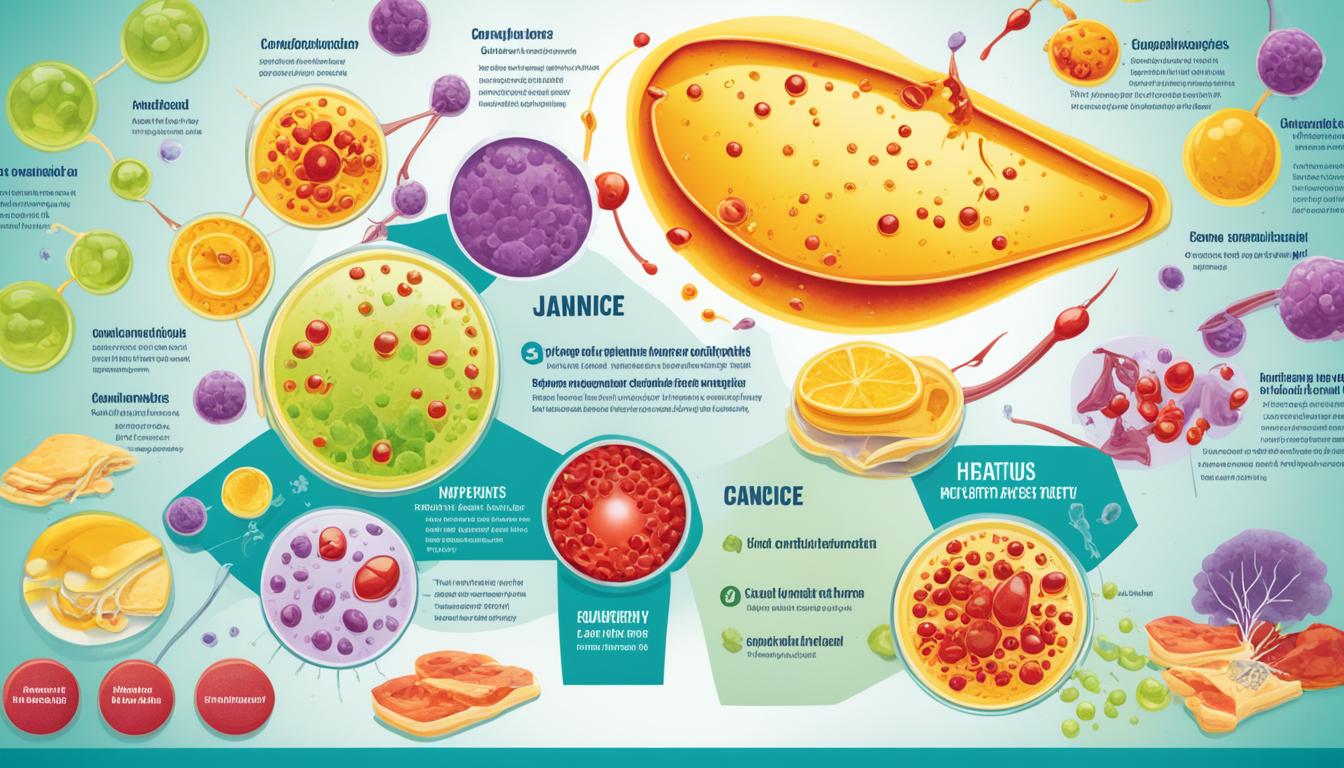Introduction
Hepatitis A is a liver infection caused by the hepatitis A virus. It spreads mainly through contaminated food or water. Common symptoms are fever, fatigue, and yellow skin or eyes.
The incubation period for this virus is 15-49 days, averaging around 30 days. Diagnosis is by a blood test checking for HAV antibodies. Treatment focuses on rest and drinking water.
In severe cases, like liver failure, stem cell therapy might be an option. This therapy uses stem cells to help the liver recover.
Key Takeaways:
- Hepatitis A is a viral infection that primarily affects the liver.
- It is caused by the hepatitis A virus (HAV) and is typically transmitted through contaminated food or water.
- The symptoms of hepatitis A can vary from mild to severe and may include fever, fatigue, loss of appetite, nausea, abdominal pain, dark urine, and jaundice.
- Diagnosis is usually made through blood tests to detect HAV antibodies.
- Treatment for hepatitis A is generally supportive, focusing on rest and hydration.
- In severe cases or cases with complications, such as liver failure, stem cell therapy may be considered as a potential treatment option.
- Stem cell therapy involves the use of stem cells to regenerate damaged liver tissue and improve liver function.
Prevention and Transmission of Hepatitis A
Stopping hepatitis A is vital to lower the spread and keep people safe from this virus. Good hygiene and getting vaccinated can greatly cut down on hepatitis A cases.
Prevention Strategies
To prevent hepatitis A, it’s important to have clean habits and get the vaccine. Here’s what you can do:
- Hand Hygiene: Before you eat or handle food, wash your hands with soap and water. This is even more important after the bathroom or changing diapers.
- Safe Food and Water: Don’t eat or drink water that could be contaminated, especially in places where hepatitis A is common. Choose clean water from trusted sources and eat food that’s well-cooked.
- Sanitary Habits: Keeping things clean helps stop hepatitis A from spreading. Clean food prep areas and wash kitchen tools often. Also, make sure waste and sewage are disposed of correctly.
- Vaccination: The hepatitis A shot is very good at stopping the infection. It’s a must for kids, people in high-exposure jobs, and travelers going to places with lots of hepatitis A cases.
The vaccine protects you for a long time, but it takes a while for your body to build immunity after the shot. So, plan to get the vaccine well before your trip to areas with hepatitis A.
Transmission Routes
Hepatitis A mostly spreads through waste getting into your mouth. It usually happens when people don’t wash their hands well after using the bathroom. Common ways it spreads are:
- Contaminated Food or Water: If food or water is tainted with the virus, you can get hepatitis A from it. That’s why it’s crucial to follow sanitation steps when preparing food and to keep water clean.
- Close Personal Contact: Being near someone with hepatitis A can spread the virus, particularly if there’s contact with their waste or if hygiene is poor.
- Sexual Contact: This virus can also spread through sexual activities, especially oral-anal sex. It’s more likely in places where many people have hepatitis A.
Places that don’t keep up good sanitation might see hepatitis A outbreaks. This can happen in restaurants, daycares, or other places where people are close together and cleanliness isn’t a top priority.
By being clean, getting vaccinated, and making sure things are sanitized, we can fight off hepatitis A. These steps are key to reducing the virus’s spread and keeping everyone healthy.
Complications and Epidemiology of Hepatitis A
Many hepatitis A cases get better by themselves. But, some people can face serious troubles. These might include a sudden liver failure. This could lead to needing a new liver through a transplant. There’s also a chance that hepatitis A can last longer or come back again. This could show up as a yellowing of the skin and eyes or problems with liver and bile flow.
The issue is widespread globally but the risk can change. Places with good hygiene and vaccines see less of it. Still, it can spike among groups like the homeless or men who have sex with men. Places lacking clean water are also at high risk. Here, hepatitis A is a major worry for public health.

